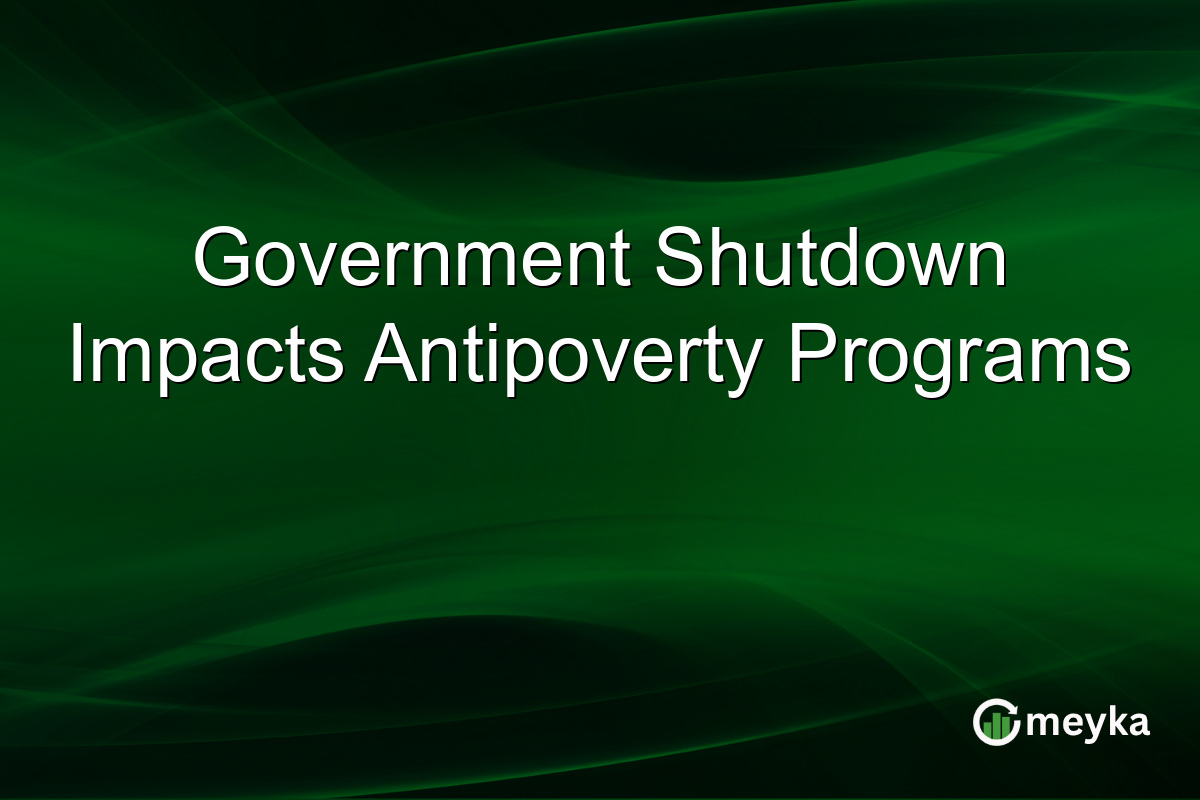Government Shutdown Impacts Antipoverty Programs
The ongoing government shutdown is posing a substantial threat to antipoverty programs across the United States. With federal funding at a standstill, essential aids such as food support and child care are in jeopardy. This fiscal uncertainty affects millions of low-income families, potentially amplifying socio-economic challenges if the deadlock persists. Understanding the ramifications of this shutdown is crucial for comprehending its impact on our society’s most vulnerable.
The Threat to Antipoverty Programs
Antipoverty programs rely heavily on federal funding, which becomes inaccessible during a government shutdown. Programs like the Supplemental Nutrition Assistance Program (SNAP) and Temporary Assistance for Needy Families (TANF) serve as lifelines. Without federal input, these programs may face operational deficits, directly affecting beneficiaries. For instance, SNAP currently supports over 41 million people who risk losing access to essential food services. This illustrates how critical these programs are for day-to-day survival.
Economic and Social Repercussions
The economic implications of a prolonged shutdown include disruptions in local economies dependent on these federal aids. Local food banks and child care centers, already stretched thin, could face increased demand without accompanying funding. A report by the Center on Budget and Policy Priorities suggests that prolonged funding gaps could exacerbate poverty levels, widening the economic divide. Furthermore, social stability is at stake as financial insecurity may lead to increased crime and reduced public health standards.
Federal Budget Crisis and Its Root Causes
The US budget crisis stems from political disagreements over fiscal policies. When consensus can’t be reached, the government faces shutdowns, ceasing non-essential federal operations. This reflects broader economic challenges as lawmakers struggle to prioritize spending. The US budget crisis is not just a financial issue but a political one that disproportionately impacts vulnerable populations. Ensuring bipartisan cooperation is key to resolving this stalemate and mitigating its adverse effects on antipoverty programs.
Read about similar issues on Reddit.
Final Thoughts
The current government shutdown underscores a critical point: sustained political discord can have profound, real-world impacts on millions of Americans. Antipoverty programs, vital to those in need, are at the mercy of federal funding and budgetary politics. Policymakers must prioritize these programs and seek resolution to avoid worsening social inequities. As we monitor the shutdown’s developments, it’s clear that safeguarding these programs is imperative for social and economic stability. A swift resolution is more than a fiscal necessity; it’s a moral one.
FAQs
During a shutdown, federal funding is paused. This disrupts programs like SNAP and TANF, which depend on these funds to provide essential services such as food and child care to low-income families.
A sustained shutdown can lead to increased poverty levels, strain local economies, and exacerbate social issues like crime and public health challenges, widening the gap between economic classes.
Shutdowns happen due to political disagreements over the federal budget. When lawmakers cannot agree on spending, non-essential government operations cease, impacting programs that rely on federal funding.
Disclaimer:
This is for information only, not financial advice. Always do your research.






